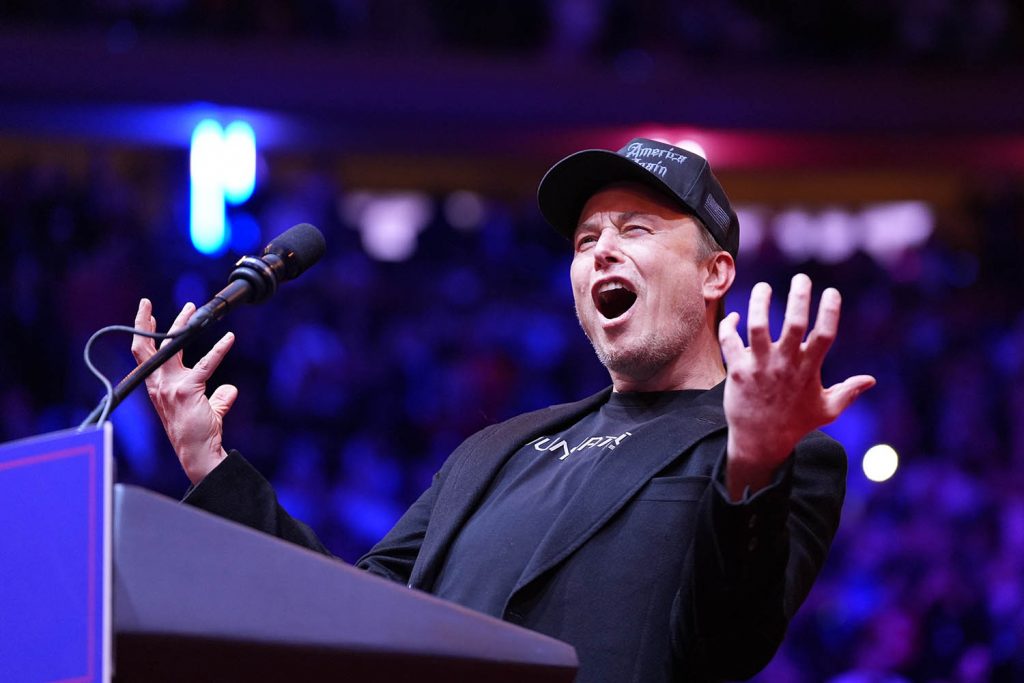
Is Elon Musk about to receive the mother of all tax breaks? If he does enter government as head of the Department of Government Efficiency (Doge), laws governing conflicts of interest would force him to sell all of his holdings in Tesla, X and SpaceX at a minimum.
But thanks to an obscure provision called Section 1043, Musk, as a federal employee, could defer paying the capital gains tax on roughly $299.9 billion of shares (SpaceX hasn’t disclosed an exact valuation).
Once the shares are cashed the money can be reinvested into “conflict-free” diversified funds or government bonds within 60 days. The tax is deferred until new assets are sold (and would essentially be wiped out after death).
Federal gains tax is 20 per cent for high-income individuals, while Net Investment Income Tax would be charged at 3.8 per cent. Musk wouldn’t pay state capital gains because his companies are based in Texas.
Given all that, Musk could be looking at a personal saving of $60.9 billion. But will he actually cash out?
“I don't think he wants to divest, he wants to stay in business and keep on making money,” says Richard Painter, who was chief ethics lawyer under George W. Bush.
Another lawyer who works with one of Musk’s companies said speculation that he would seek a gains tax deferral taken by other wealthy individuals entering government – notably Gary Cohn and Hank Paulson – was “off-base”.
For the tax break to be effectively permanent, the assets would have to be cashed after Musk’s death, when they are repriced for tax at a fair market value. Selling off that amount of stock in one go could also lead to a fire sale.
Besides, Musk doesn’t seem likely to relinquish his dream of going to Mars for a government desk job. His drug use and connections with foreign leaders would raise flags on extensive background checks required to be a federal employee. But could he get the best of both worlds?
1 – Muddle. If Doge sounds more meme than reality that’s because it is. The Department of Government Efficiency will be, ironically, run by two people and is more likely to exist as an advisory committee than a government department.
Donald Trump says the body will provide advice and guidance “from outside government”, meaning that Musk – an adviser – would be ineligible for the tax deferral. While this may rule out the need for him or his co-chair, Vivek Ramaswamy, to divest their holdings, they could still be subject to a higher level of transparency.
“All communications between members must be made public and all meetings between them have to be open to the public,” says Walter Shaub, former director of the US Office of Government Ethics. “They have to release a charter, rules and a plan for diversifying membership so that the committee includes representatives of various interested parties. If, for instance, they consider cuts to veterans’ benefits, they should include veterans’ groups.”
2 – Get a waiver. Technically, Trump has unilateral power to grant Musk a waiver from the ethics rule that “prohibits government employees from participating personally and substantially in official matters where they have a financial interest”. It’s been done before.
- Henry “Hank” Paulson sold $484 million in Goldman Sachs shares before running the Treasury in 2006. The capital gains tax – likely in the tens of millions – was deferred (and as far as we know, still is). But he also kept a small chunk of change that the ethics advisers deemed harmless.
“He had a Goldman Sachs pension that I let him keep, because it would only fail if Goldman Sachs failed. And we never imagined that Goldman Sachs would fail,” says Painter. But then the financial crisis hit in 2008 and Paulson found himself dealing directly with his old boss. President Bush granted him an executive waiver to let him keep his pension.
- In 1990 President George H.W. Bush exempted 10 members of his cabinet from conflict of interest laws so he could get their advice on “policy and military measures” to counter the Iraqi invasion of Kuwait. Most held shares in oil companies and feared their advice to the president could be construed as insider trading.
3 – Be a “special advisor”. Musk is by no means the first to blur the lines. Carl Icahn was fired by Trump in 2017, when an investigation in the New Yorker revealed multiple conflicts created by his role as regulatory advisor – including lobbying the Environmental Protection Agency. In the months leading up to that, Icahn told multiple allies he had become frustrated with scrutiny cast upon his business.
Musk’s desire to be involved in government may soon face a similar collision with reality.






